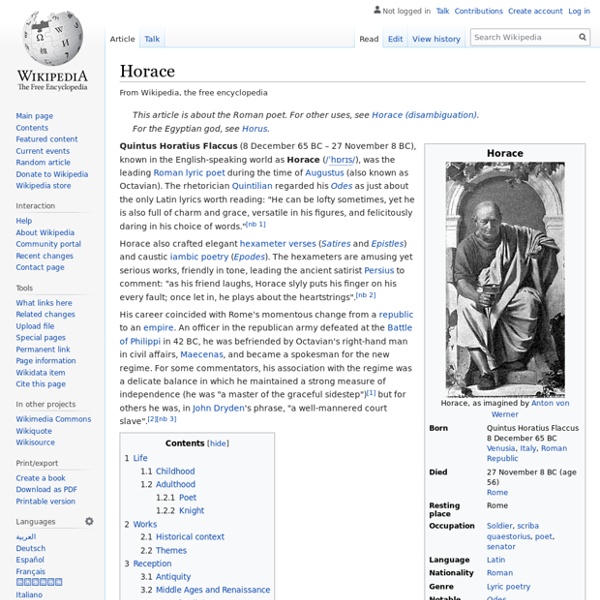Neptunian
English[edit] Pronunciation[edit] (Received Pronunciation) IPA(key): /nɛpˈtjuː.nɪ.ən/(General American) IPA(key): /nɛpˈt(j)u.ni.ən/, /-ˈtʃuː-/Hyphenation: Nep‧tun‧i‧an
Neptune in fiction
From Wikipedia, the free encyclopedia Jump to navigationJump to search The planet Neptune has been used as a reference and setting in various films and works of fiction: Neptunians[edit] The planet is also used as the home of various alien species and characters:
futurism
It wasn’t too long ago that schoolchildren were taught that our solar system ends with Pluto—and that its outer reaches held nothing but empty black space. But ambitious probes and new technology continue to reveal that the space beyond the last true planet is full of movement and mystery—and that its population of ancient objects may hold the keys to the origins of our solar system itself. Neptune—a deep blue ice giant, and the eighth planet from the Sun—was visited just once by the Voyager 2 probe in 1989. It is the gateway to Trans-Neptunian space: a densely populated region known to host 4/5 dwarf planets. What Lies Beyond Neptune? Though earlier models of the Solar System named Pluto as the ninth and final planet from the Sun, more sophisticated observations revealed that Pluto was in fact a large dwarf planet—merely one of 700,000 currently recognized by the International Astronomical Union’s (IAU) Minor Planet Center.
trans_neptune_objects
Sedna is a big Trans-Neptunian Object. Here's what an artist thinks Sedna might look like. Click on image for full size Image courtesy NASA/JPL-Caltech/R. Hurt (SSC-Caltech) The outer edge of our Solar System is not empty. There are many huge spheres of rock and ice out near Pluto's orbit and beyond.
Uranian
The term Uranian was quickly adopted by English-language advocates of homosexual emancipation in the Victorian era, such as Edward Carpenter and John Addington Symonds, who used it to describe a comradely love that would bring about true democracy, uniting the "estranged ranks of society" and breaking down class and gender barriers. Oscar Wilde wrote to Robert Ross in an undated letter (?18 February 1898): "To have altered my life would have been to have admitted that Uranian love is ignoble.
Uranian poetry
The Uranians were a small and clandestine group of male homosexual poets who published works between 1858, when William Johnson Cory published Ionica, and 1930. Although most of them were English, they had counterparts in the United States and France. Origin of the term[edit]
Uranian
English[edit] Pronunciation[edit] (Received Pronunciation) IPA(key): /jʊˈɹeɪnɪən/(General American) IPA(key): /jʊˈɹeɪniən/Rhymes: -eɪniənHyphenation: Ura‧ni‧an
Uranian - definition of Uranian by The Free Dictionary
Love, on the contrary--Love--the true, the divine Eros--the Uranian as distinguished from the Diona~an Venus--is unquestionably the purest and truest of all poetical themes. This presents an exciting opportunity for the upcoming James Webb Space Telescope, which will be able provide vastly improved spectroscopic constraints on the Uranian rings in the coming decade. In The Fanatics, Ed is an African American mothering man and putative Uranian who occupies a complicated social position in his predominantly white town.
Urania
Urania, a restored Roman copy after a Greek original of the 4th century BC, Hadrian's Villa. Urania (Uranya as a variant form) (; Ancient Greek: Οὐρανία, Ourania; meaning "heavenly" or "of heaven") was, in Greek mythology, the muse of astronomy. Short names; Rania, Ranya (Ράνια; Greek) Family[edit] Function and representation[edit]
Sir Nigel
Plot[edit] The tale, at its outset, traces the fortunes of the family of Loring of the Manor of Tilford in Surrey,[1] many of whose scions had been prominent in the service of the Norman and Angevin Kings of England, against the backdrop of the Black Death. The tale starts with the problems the family and its last scion, Nigel Loring, face at the hands of the monks of Waverley Abbey, up to the coming of Sir John Chandos. Playing the host to King Edward III of England, Nigel asks to be taken into his service, a request that is complied with by his being made squire to Sir John Chandos. In order to make himself worthy of the hand of the Lady Mary, daughter of Sir John Buttesthorn, he vows to perform three deeds of honour to her.



